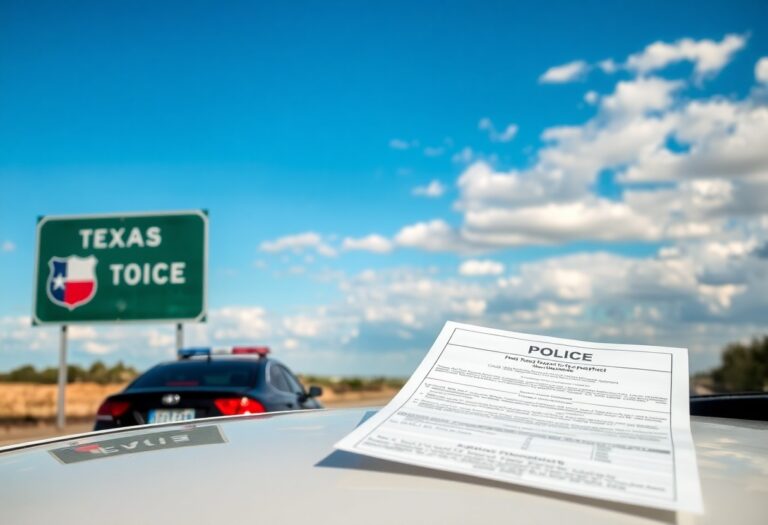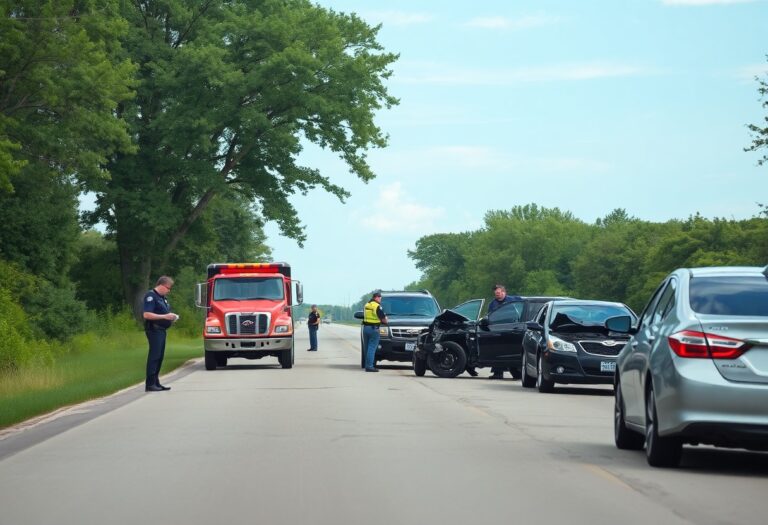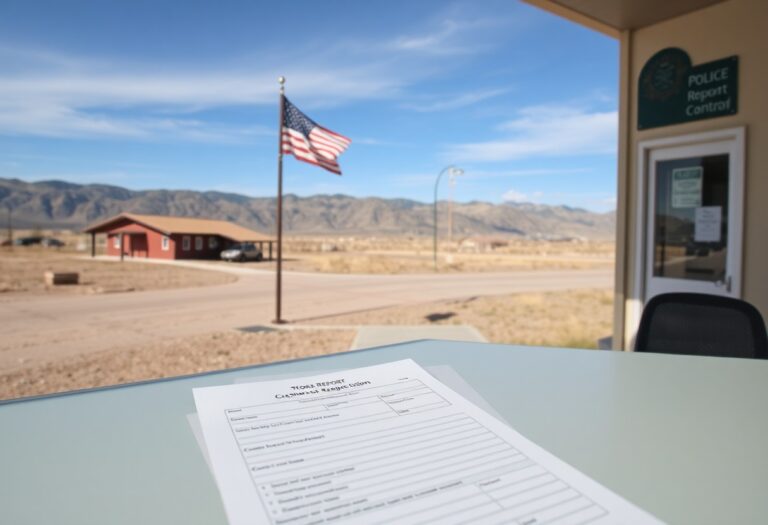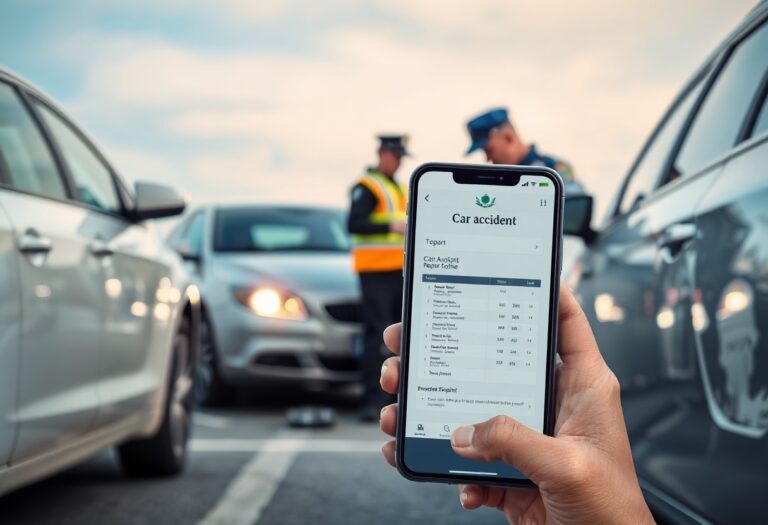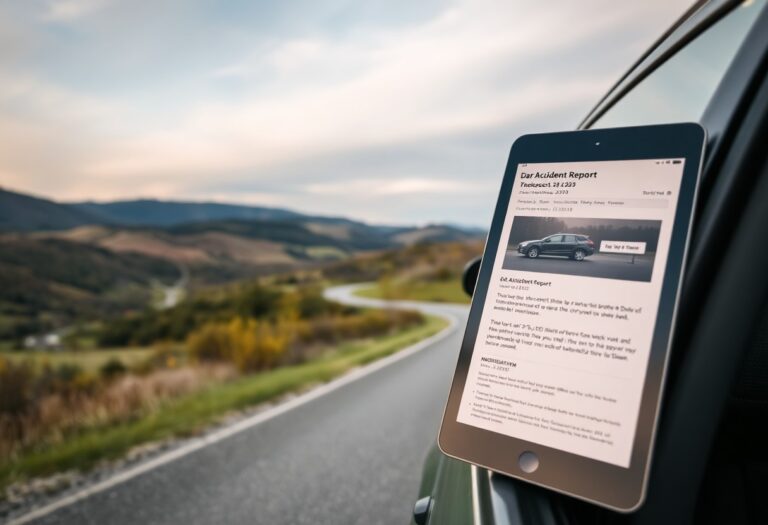Just when you need it the most, having quick access to your car accident report can make all the difference in navigating the aftermath of a vehicle collision. In Faribault County, Minnesota, you can easily obtain your accident report through various methods, ensuring a smooth process during a stressful time. This blog post will guide you through the steps to access your report effectively, helping you stay informed about your rights and responsibilities.
How to Quickly Request Your Car Accident Report in Faribault County
Obtaining your car accident report in Faribault County is straightforward when you know the right steps. The process can be done online or in person, ensuring you have quick access to the vital information you need for follow-up actions or insurance claims.
Step-by-Step Guide for Online Requests
| 1. Visit the official Faribault County Sheriff’s Office website | Navigate to the ‘Records Request’ section. |
| 2. Complete the online request form | Provide your details, incident date, and report number if available. |
| 3. Submit your request | Pay any applicable fees through the secure payment portal. |
| 4. Await confirmation | You’ll receive an email with a link to download your report or details on its status. |
In-Person Request Protocols and Locations
For those who prefer to make their request in person, Faribault County offers specific locations for direct access to accident reports. The main location is the Faribault County Sheriff’s Office, where you can fill out the request form and submit it along with payment.
Visiting the Sheriff’s Office located at 320 S Main St., Blue Earth, MN, allows for immediate assistance. Bring your identification and any necessary documentation related to the accident. The office hours are Monday to Friday, from 8 AM to 4:30 PM, excluding holidays. In-person requests can often expedite the process, allowing you to leave with your report in hand, depending on current workload and availability.
Decoding the Details: What Your Car Accident Report Contains
Your car accident report serves as a comprehensive document outlining the circumstances surrounding the incident. Common elements within the report include the date, time, and location of the accident, details about the vehicles involved, and a summary of the events leading to the collision. Police findings, witness accounts, and any citations issued are also documented, providing a clear picture of responsibility. Understanding these details can be imperative for filing insurance claims or legal actions following an accident.
Essential Information and Legal Relevance
This report includes imperative information such as the names and contact details of drivers and witnesses, vehicle registrations, insurance information, and the responding officer’s observations. These details can significantly impact legal outcomes, as they establish accountability and assist in determining liability. Accessing this information helps you build a solid case whether you’re pursuing compensation or contesting a claim.
Common Myths Surrounding Accident Reports
Misinformation often surrounds car accident reports, leading to misunderstandings about their implications and accessibility. For instance, many believe that only police can request these reports, when in fact, you can obtain them directly as well. Additionally, there’s a prevailing myth that accident reports are only used for criminal proceedings; however, they are highly relevant in civil cases involving insurance claims and settlements.
Some people assume that police reports automatically favor the officer’s narrative without considering all perspectives. In reality, the report is a factual account that highlights the evidence available at the scene, which may not always mirror the officer’s opinions. It’s also a misconception that you can only access your own report; often, involved parties can obtain a copy of the report to understand the official documentation of the events that took place. Being aware of these myths can facilitate a smoother process as you navigate the aftermath of an accident.
Navigating the Legal Landscape Post-Accident
Post-accident, understanding the legal landscape can feel overwhelming. You might face insurance claims, legal liabilities, and potential compensation negotiations. Being proactive and informed about your rights can help you navigate through the complexities. Often, the initial steps include securing your accident report, gathering witness statements, and documenting damages or injuries. Recognizing how these elements interact within the legal system is necessary in building a strong case in your favor.
Understanding Your Rights and Responsibilities
Your rights and responsibilities following a car accident are defined by state law and can impact your case significantly. You have the right to seek compensation for medical expenses, lost wages, and property damage. However, you also carry the responsibility of reporting the accident to your insurance company and ensuring that all necessary legal processes are followed. Familiarity with both sides will empower you in any proceedings that follow.
When to Consult a Lawyer
Consulting a lawyer is advisable when the situation becomes complicated or contentious. For example, if injuries are serious, liability is disputed, or insurance negotiations stall, legal expertise can help protect your interests. A knowledgeable attorney can provide guidance through the intricacies of personal injury law, ensuring that you are treated fairly and receive appropriate compensation.
Turning to legal representation often pays off, especially if you find yourself facing challenges like pushback from insurers or a complex liability case. Engaging a lawyer early can streamline the process; they can help collect necessary evidence and advise on what to say or avoid during conversations regarding your accident. With their expertise, you can focus on recovery while they advocate for your rights in pursuing a favorable outcome.
Pitfalls to Avoid: Common Mistakes After an Accident
Experiencing a car accident can be overwhelming, making it easy to overlook imperative steps that could impact your recovery or insurance claims. One of the most common mistakes you might encounter is not gathering information or following procedures properly after the incident. Ensuring you act wisely in these moments can significantly affect your ability to navigate the aftermath with greater ease.
Failing to Obtain Your Report
Neglecting to obtain your accident report can cause complications down the line. This report serves as a vital document for insurance claims, legal matters, and personal records. Without it, you may struggle to prove details regarding the incident, leading to potential disputes over liability and damages.
Misunderstanding Insurance Policy Implications
Many drivers fail to grasp the detailed implications of their car insurance policies following an accident. Misinterpretations about coverage limits, deductibles, and claim eligibility can lead to financial strain during an already stressful time. Understanding your policy helps you make informed decisions about repairs, medical expenses, and compensation claims.
Your insurance policy may have specific stipulations regarding the types of incidents covered, including but not limited to collisions, theft, and property damage. Without a clear understanding of these terms, you risk missing out on crucial benefits. For instance, if your policy includes uninsured motorist coverage but you had limited knowledge of it, you could miss valuable compensation when dealing with an at-fault driver who lacks insurance. Moreover, misjudging your deductible can influence whether you proceed with a claim or pay out-of-pocket for repairs. Familiarizing yourself with these aspects of your coverage ensures that you can confidently make decisions that align with your best interests, ultimately preventing potential financial pitfalls.
Keeping a Record: Importance of Documenting Your Accident
Documenting the details of your accident is necessary for establishing the facts surrounding the incident. By taking photographs of the scene, collecting witness information, and writing down your account of what happened, you create a comprehensive record that can serve as a valuable asset later on. This documentation helps clarify the circumstances of the accident and can significantly impact any legal disputes or insurance claims, ensuring that you have a solid foundation for your case.
Leveraging Your Report for Future Claims
Your accident report can be a powerful tool when pursuing claims for vehicle damage, personal injury, or even lost wages. With clear details provided in the report, you can present a compelling case to your insurance company or legal representatives. Evidence like the police report, eyewitness accounts, and photographs can substantiate your claims, enabling you to maximize potential compensation for your losses.
Long-Term Benefits of Proper Documentation
Proper documentation of your accident goes beyond immediate claims. Maintaining comprehensive records can play a vital role in future legal matters or insurance negotiations. The detailed evidence you gather can help demonstrate patterns in your driving history or reveal inconsistencies in opposing accounts, which may strengthen your position in disputes. Over time, these documented specifics are invaluable in ensuring you receive fair treatment and compensation in any future related encounters.
The long-term benefits of maintaining thorough documentation cannot be overstated. Effective records not only aid in securing compensation but also provide clarity should any questions arise down the line. For instance, if you suffer lasting effects from the accident, having a detailed history of incidents, medical treatments, and their impacts can help establish a clear chain of causation. This ensures that, should you need to revisit the situation years later, your evidence will still be valid and potent, making a significant difference in any future claims or legal actions.
Final Words
The process of obtaining your car accident report in Faribault County, Minnesota, is streamlined for your convenience. By following the specified steps, you can access detailed information quickly and efficiently, empowering you to take further action regarding your case. Whether for insurance purposes or personal records, having your accident report readily available is beneficial. Stay informed and proactive about your rights and responsibilities as you navigate the aftermath of an accident.







